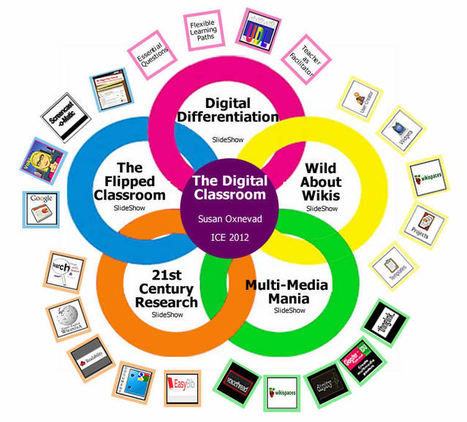If I could ensure that kids come away from science class with one thing only, it wouldn’t be a set of facts. It would be an attitude—something that the late physicist Richard Feynman called “scientific integrity,” the willingness to bend over backward to examine reasons your pet theories about the...
Research and publish the best content.
Get Started for FREE
Sign up with Facebook Sign up with X
I don't have a Facebook or a X account
Already have an account: Login
Tech tools that assist all students to be independent learners & teachers to become better teachers
Curated by
Beth Dichter
 Your new post is loading... Your new post is loading...
 Your new post is loading... Your new post is loading...
|
|
















Have you heard about the concept of a paradigm shift? This happens when new information comes in that does not fit what we expected. Unfortunately in many cases we choose not to see this lack of fit, and ignore the information. This post looks at this type of issue but suggests that you have students look it as "surprises" and notes that "we need to actively look for signs that our assumptions are wrong..."
How can we do this? Try creating a "Surprise Journal" with your students. Based on one teacher who has done this consider having your students (and you) look for moments of "surprise." Have them respond to two questions:
* Why was this surprising?
* And what does that tell me about myself?
This teacher has collected over 1,000 moments of surprise and shares a few of them in this post.
Here is his statement about how it changed his classroom culture (quoted from the post):
“In the class culture, acknowledgement that you are mistaken about something has become dubbed a ‘moment of surprise’ (followed by a student scrambling to retrieve their journal to record it),” he wrote to me. “As this is much more value-neutral than ‘I screwed up,’ the atmosphere surrounding the topic is less stressful than in previous years.”